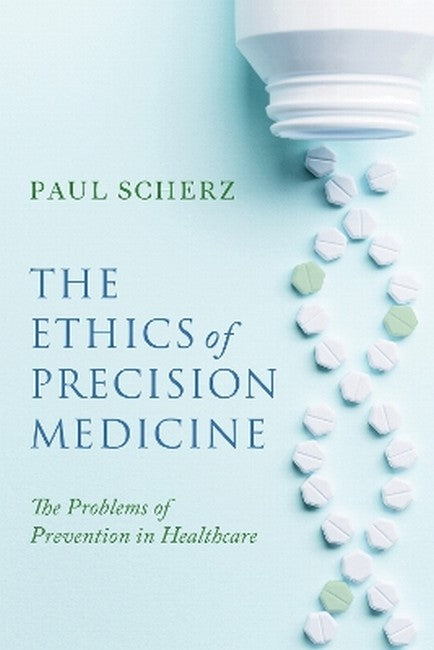Paul Scherz is the Our Lady of Guadalupe Professor of Theology at the University of Notre Dame. He is the author and editor of several books, including The Evening of Life: The Challenges of Aging and Dying Well (University of Notre Dame Press, 2020).
Request Academic Copy
Please copy the ISBN for submitting review copy form
Description
Acknowledgements Preface Part 1. The Shift to Prevention 1. Suspicion of the Body 2. Sicken to Shun Sickness 3. Genetics and Risk 4. Individuals and Populations 5. Public Health Ethics and Clinical Ethics Part 2. Ethical Problems of Prevention 6. The Limitless Demand for Health 7. Managing Populations 8. The Obligation of Health 9. Exclusion and Elimination 10. Caring for the Statistical Other Part 3. Addressing the Problems of Prevention 11. Prevention and the Social Determinants of Health 12. Regimen 13. Genomics in the Identification and Treatment of Disease 14. Institutions for Slow Medicine Bibliography
"The Ethics of Precision Medicine offers a way of distinguishing high risk that medicine can reduce without undue adverse consequences from the much broader category of risk that is part of being human." -Farr Curlin, co-author of The Way of Medicine "The Ethics of Precision Medicine is an insightful book and a healthy corrective for folks like myself who were almost entirely blind to the risks of precision medicine. There are great risks in trying to minimize all risks." -Word on Fire "While Scherz's book would be well received by bioethicists and moral philosophers focused on questions at the intersection of technology, economics, and clinical decision-making, the project's compactness and accessibility renders it the rare bioethics work that might serve as a clarion call for clinicians themselves-and one especially germane in the current AI-driven and healthcare debt-obsessed cultural moment." -Theoretical Medicine and Bioethics "Interesting and provocative . . . Scherz makes similar claims about preventive medicine: the focus on risk moves the anxiety and alienation of illness-the sense that one's body has betrayed one, and that more betrayal is in store-to the realm of experienced health." -Public Discourse

